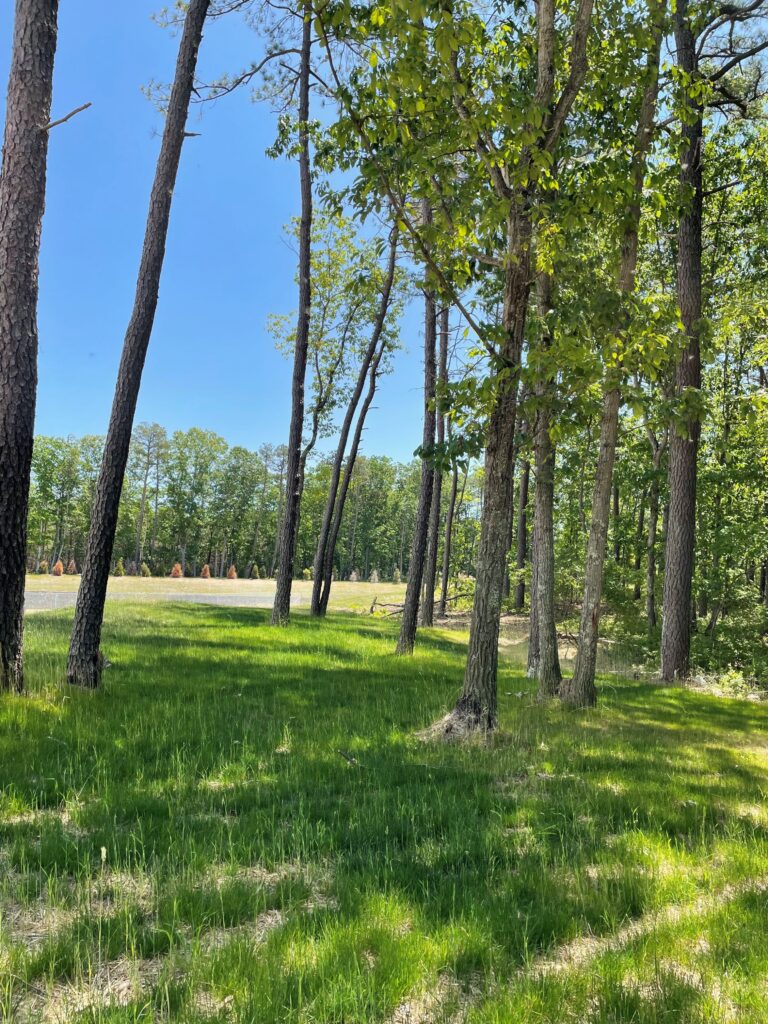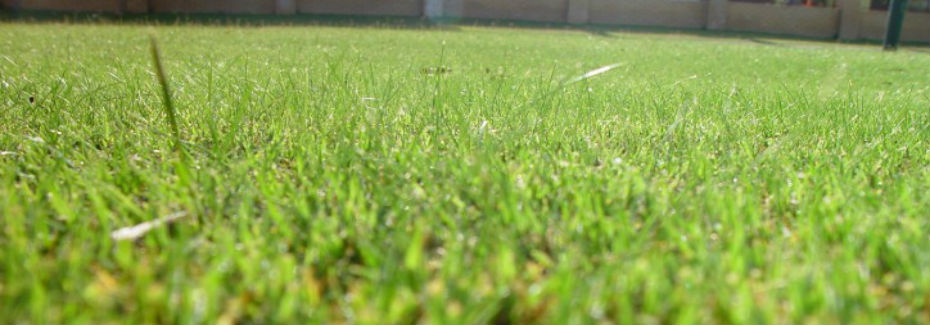For Construction Sites:

Seeding as per the NJ State Standards for Permanent Vegetative Cover for Soil Stabilization requires topsoil of 5in depth, lime application based on a soil test, fertilizer (10-10-10), straw mulch and an anchoring method with the seed chosen. Straw mulch is required for all seeding to ensure the seed stays in the soil throughout various types of environmental conditions such as rain, wind, and wildlife disturbance. The Standard describes many appropriate seed mixtures for use in NJ, including warm season grasses, cool season grasses, pinelands native seed mixtures, coastal, wildflower and meadow seed mixtures. Each seed mixture approved for use is further broken down by soil drainage class as well as planting rates and seeding methods.
The USDA Plant Hardiness Zone map for New Jersey is used to determine your areas of optimal and acceptable planting periods for each seed mix in the standards. Once the seed starts to germinate, the area shall be at least 80% germinated and mowed once to decrease the risk of erosion and sedimentation to the surrounding environment and water bodies.
For Residential Lawns:
Fall seeding can add volume and improve your lawn’s health. As temperatures decrease and precipitation increases in September, grass seed will have ideal conditions to germinate and take root. A soil test can provide you with the important information you’ll need to maintain a healthy foundation for your lawn. Rutgers University hosts a Soil Testing Laboratory designed to inform homeowners of specific needs of their lawn. Getting your soil tested will ensure proper application of various nutrients, saving you time and money. Once you determine the soil texture, organic matter content and moisture conditions in your soil, as well as the light conditions in your yard, select the species of turfgrass seed that is best adapted to survive and thrive. Kentucky Bluegrass, fine fescues, perennial ryegrass and tall fescues are the more traditional species recommended for lawn grasses, according to Dr. James Murphy, Rutgers Extension Specialist in Turfgrass Management.
For more information about creating and maintaining a healthy lawn, click and read Best Practices for Soil Management for Lawns, written by Charles A. Schmidt and Dr. James Murphy.

